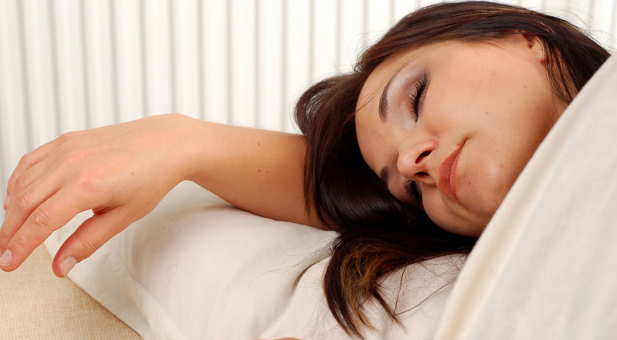5 Big Reasons You Need to Seek Better Rest
We know that stress is the hidden culprit behind disease, and we know that we can’t avoid stress altogether. In the face of so many toxins in our environment—our food, our water, and our air—we MUST develop strategies of living that counterbalance that stress and build strength and resiliency.
One of the best ways to do that is to get a good amount of quality sleep. You’ve heard that sleep is important, but maybe you don’t really know why. What really happens when you are asleep?
Repair and Restore
Many of us tend to skip sleep when we get stressed or overly busy. This is especially a struggle during the holidays when we may be traveling or hosting a houseful of guests, doing too much, and wired up from increased activity and interaction with others.
Unfortunately, that tendency causes our bodies to be more stressed, while robbing them of the chance to repair and restore. When you fall asleep, it seems like your body powers down, but in reality the “rest and digest” functions are amped up to repair and restore any damage done during the times of wakefulness. While you sleep, your brain releases substances that encourage tissue growth. This helps heal cuts, bruises, and even sore muscles from your workout. You should get 7-8 hours of sleep every single night.
Quality Sleep Helps Your Brain
All the information bombarding you each day stresses out your brain and your body, whether you realize it or not. When you sleep, all that information is analyzed, synthesized, and put away in your brain for future reference. Like some fairy godmother that tidies up your bedroom while you sleep, the brain is able to put all that random information in the proper “drawers” where it will make sense to you. Often memory problems or nor being able to retrieve information is the result of too little sleep, or poor quality sleep.
Quality Sleep Helps Your Hormones
Some very important hormones are controlled during sleep. Leptin and ghrelin are two hormones responsible for hunger and satiety. When you sleep well, your leptin levels are enhanced, which means that you won’t be feeling hungry all the time. But when you skimp on sleep, your ghrelin levels surge causing you to crave sweets and have less self-control over your eating. In fact, a study in the American Journal of Clinical Nutrition showed that those who got good quality sleep consumed an average of 300 fewer calories the next day. Sex hormones are affected as well. Women who sleep well generally desire more sex than those who don’t.
Sleep and Mental Health
We all know that cranky feeling when we haven’t gotten enough sleep. Everything bothers us more, and we tend to be more irritable and less patient and positive when we’ve skipped a few hours of sleep. But chronic sleep deprivation can truly mess with your mind. In the journal SLEEP, researchers reported that those who sleep 7-9 hours per night had far fewer bouts of depression than those who slept less than that amount.
Sleep Boosts Immune Function
While sleeping, your body produces more white blood cells than it does when awake. This translates into a better resiliency to viruses, bacteria, and germs in general. Those who sleep seven hours or less are three times more likely to come down with the common cold than those who sleep for eight hours.
Takeaway: Sleep is a good counterbalance after the stress of the holidays. Don’t skimp on good, quality sleep. Sleep helps both your body and your brain be more resilient.
Tips for better sleep:
1. Keep your room cold. Best sleep temperature is 60-68 degrees.
2. Keep your room dark. Get black out curtains and don’t fall asleep to the television.
3. Turn off all electronics as they provide ambient light and electromagnetic frequencies that can disrupt sleep.
4. If you snore, address that with a professional so your breathing will be unimpeded.
5. Don’t exercise too late in the evening as your body will be energized. But DO exercise. Those who regularly exercise sleep better than those who don’t.
6. Try natural relaxation solutions like lavender essential oils and Epsom salt baths instead of relying on sleeping pills or alcohol. Artificial sedatives have a rebound affect that keep you from naturally deep sleep.
7. Keep a regular schedule for sleep; retiring and rising at the same time each day.
8. Get 20-30 minutes of sunshine each day. This stimulates the production of melatonin in the brain that will help you sleep.
9. Avoid screen time for two hours before bed. That means television, tablet, e-reader, or playing games on your phone. Exposure to electronics stimulates the left brain hemisphere that can keep you awake—wired but tired.
10. Let it go. Tomorrow is another day, and worrying will just keep you awake.
America’s leading stress expert, Dr. Pete Sulack is a highly sought-after teacher, lecturer, and author. His studies on the effects of stress, coupled with over one-million patient visits and attention from medical communities led him to write and create Unhealthy Anonymous (UHA12.com) to help individuals, corporations and non-profits mitigate the immense effects of stress on health and human behavior. Use code uha12.com/#hope to try out the program and receive $1 off.
















































